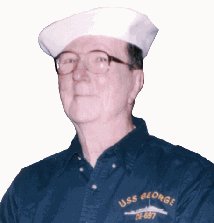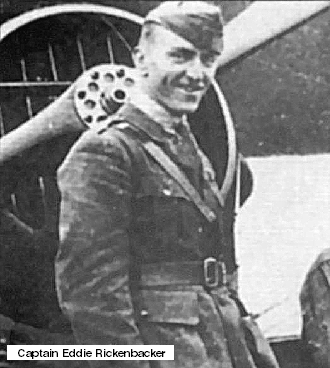|
As night came, a mist settled over the sea, and we became miserably cold. This was strange, for in the daytime, the equatorial sun baked and burned our bodies. So several men had stripped down to their skivvies, and certainly regretted this, for I had on my business suit and a leather jacket. Still, I believe I was colder that I had ever been. Everyone was sea sick because the twelve foot swells tossed our frail rafts around like corks in a typhoon. On the fifth day we ate the third orange, because of those who were sick. Sgt. Alex K was in very bad shape. He was recovering from an appendectomy and yellow jaundice in Hawaii. He began to cry out piteously for some water and at night, he was secretly gulping down sea water. Salt water has been known to drive men mad with thirst. We could see him growing weaker and weaker, so I knew he couldn't last much longer. In the daytime he lay broiling in the sun, at night he was so cold that his whole body shook. Yet, there was nothing we could do to help him. He was in love with a girl back home, and had her picture in his wallet. He would talk to her and his mother.
About 2:00 a.m. on the thirteenth morning, he gave a little sign and then he was gone. We held a little service and gave him a sea burial. Private John Bartek carried a small New Testament in a water proof container. Every morning and evening we would pull the rafts together. Then someone would read a portion of scripture and we would have a prayer meeting. Then in closing, we would all repeat the Lord's prayer. Someone had said there are no atheists in the foxhole in battle. I can tell you this, there are no atheists in rubber rafts amid white caps and sharks in the Equatorial Pacific. Captain Cherry read the scripture that afternoon and we asked the Lord for some food. Then, we sang a hymn of praise and the Lord's prayer. With my hat pulled down over my eyes to keep out some of the sun's glare, I dozed off. Suddenly, my head rocked violently as something landed squarely on top. Low and behold, it was a bird; a big fat seagull. And I knew without looking out from under my hat. This was indeed a miracle, a gift from Heaven. Food. Seagulls follow ships and are plentiful around the sea shores but out in the middle of the ocean it was unheard of. A fraction of an inch at a time, I began moving my hand up to the hat. I felt that I was shaking all over, but it must have been my imagination. The temptation was great to make a sudden grab. But I couldn't take the chance, for I didn't know exactly where the gull was. So I brought my open hand closer and closer. Then I closed my fingers and seized the bird's legs. It took about one second to wring the gull's neck, and another to de-feather it. Then I cut it into eight equal pieces. The raw meat was dark, tough, fishy… and delicious. And we chewed it up slowly, bones and all. And there was not one of us who was not aware of one thing. The sea gull appeared just after we had finished our prayer service. Some may call it a coincidence, I call it a gift from Heaven.
On the 20th day my mind began to wander. I went back to 1916 when I was 26 years old. I was the great race car demon, for I had won every race on the North American continent, so I decided to take my race car to England, and win some more. England should be glad to welcome such a famous person as myself. So I loaded my sunbeam racer onboard my ship, "The St. Louis" and headed for Liverpool England. The time was November 25, 1916, and what a surprise I received in England. An English Army Sergeant collared me before I could leave the ship. He took me to a cabin and there stood my two ship-board companions. They were British Secret Service agents, and what a dossier (file) they had on me. "You cannot take your race car off this ship. You are not welcome to race here in England. In fact, you are not welcome in England, and cannot leave this ship. You must stay on board until it returns to the United States and you cannot phone or get in touch with anyone here in England." They believed I was Baron Von Rickenbacher, a German spy. Rickenbacher was a German name, because my father was German, so later I changed my name to Rickenbacker. What a tough situation to be in, but the good Lord delivered me. Just as he kept me safe later in 134 air battles.
One night several rain squalls passed over us, so we worked until dawn, squeezing the water out of our clothes. I had one bailing bucket, and Captain Cherry used his Mae West life jacket as a reservoir. This was enough water to give us rations of two ounces a day. One night I was awakened by a strange movement of my raft. It had shifted weight. Colonel Adamson was gone, he had jumped overboard. He was one of my dearest friends from WWI. I saw his head start by, so I caught it and one shoulder. He was almost a dead weight in the water, so it was all I could do to hang onto him. I called to Captain Cherry and Lieutenant Whittaker, it took all of us to haul him back onboard. When morning came, he realized that he had let himself become disconsolate. "I am sorry," he said, and wanted to shake my hand. "I don't shake hands with your kind, you have to prove yourself first." And I believe at this point we renewed his will to live.
Are you superstitious, for it is Friday the 13th? A single engine pontoon sea plane called a King Fisher flew over our raft. The pilot was Lieutenant William F. Eadie from a base in the Ellice Islands. Which is a full 500 miles southwest from Canton Island. It was almost dark when he landed and taxied over to our raft. The other two rafts had cut loose and paddled away two days ago. "There is a PT boat coming," he said, "but I am afraid to show a light, for there are probably some Japs close by. I suggest that we taxi into our base, about 40 miles away. All the rest have been found, you are the last." The cockpit would only hold one of us, and Colonel Adamson was the sickest, so Private John Bartek and I were hoisted up and tied to the seaplane's wing. Then, the over loaded sea plane had to taxi across the ocean for 40 miles. I was wet, cold, hungry and thirsty. But very, very happy. "Thank God and God bless our Navy," I shouted. My 24 day ordeal was finally over!
Sources:
True Stories of WWII by Reader's Digest
We Thought We Heard The Angels Sing by Lieutenant James C. Whittaker
Rickenbacker-An Autobiography by Eddie Rickenbacker
Fighting The Flying Circus by Eddie Rickenbacker
.
|
|



